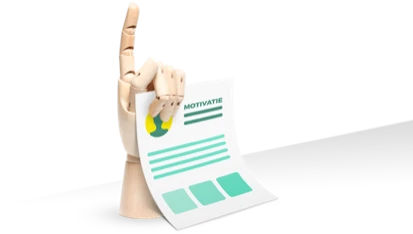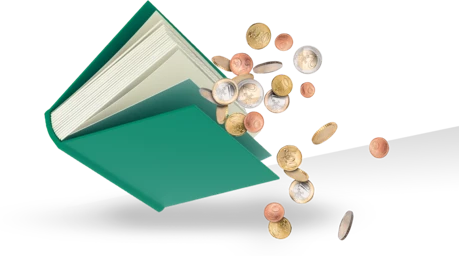Wo master - Economie en Bedrijf Eerder bekeken
Spatial and Applied Economics

Over de opleiding Open dag: 7 maart

Waarom groeien sommige steden terwijl andere achterblijven? Hoe bouwen we aan groene, verantwoorde economieën? Welke factoren stuwen inflatie, woonkosten of files op? Hoe bereiden we de welvaartsstaat voor op vergrijzing, verbeteren we zorgstelsels en delen we welvaart eerlijker tussen landen? Dit zijn voorbeelden van de vraagstukken die je aanpakt in de master Spatial and Applied Economics.
Binnen deze master kies je één van zeven specialisaties:
* Development Economics and Globalisation
* Environmental Economics
* Health Economics and Management
* Public Economics and Policy
* Real Estate and Housing Economics
* Regional and Urban Economics
* Transport and Network Economics
VU Amsterdam is de enige universiteit in Nederland met een master die stedelijke, transport-, milieu-, vastgoed-, gezondheids-, ontwikkelings- én publiek-beleidseconomie volledig integreert. Spatial and Applied Economics staat bekend om zijn kwaliteit: door Keuzegids Masters 2025 verkozen tot Beste Economiemaster van Nederland, krijgt consequent hoge waarderingen in de Nationale Studenten Enquête en ontving een bronzen medaille in Elsevier’s Beste Studies 2023.
Keuzes binnen de opleiding
We hebben onvoldoende betrouwbare informatie over dit onderwerp.
Op Studiekeuze123 kun je informatie vergelijken. Op de website van de onderwijsinstelling kun je verder lezen als de opleiding je aanspreekt.
Bekijk instellingswebsiteBekostiging: Overheid
Toelating & selectie € 2.695 wettelijk collegegeld in 2026 / 2027

Om toegelaten te worden tot een opleiding moet je aan bepaalde eisen voldoen.

Toelatingseisen
Om aan een master te kunnen starten, heb je een bachelordiploma nodig.
Sluit je bachelor niet direct aan op de master, of stroom je door van hbo naar wo? Dan moet je meestal een schakelprogramma of premaster volgen. Lees meer over schakelprogramma’s (Schakelprogramma, is dat nodig? - Studiekeuze123)
Collegegelden
Wettelijk collegegeld
Wettelijk collegegeld
Wettelijk of instellingscollegegeld?
Heb je recht op het wettelijk collegegeld of betaal je het instellingscollegegeld? Gebruik onze Collegegeldwijzer
Hoe hoog is het instellingscollegegeld? Bekijk het op de website van de universiteit
Meer weten?
Belangrijke data

Mis geen belangrijke gebeurtenissen. Check belangrijke data ook bij de opleiding zelf.

-
7
maart 2026
Open dag / avond
Meer open dagen -
31
mei 2026
Aanmelddeadline opleiding -
1
september 2026
Start opleiding
Alle startmomenten
Tijdens de opleiding 53 eerstejaars

Geen enkele opleiding is hetzelfde. Kijk daarom naar de kenmerken van een opleiding.

Studeren bij deze instelling
Studieadvies
We hebben onvoldoende betrouwbare informatie over dit onderwerp.
Studieverloop
Diploma binnen 2 jaar
Meer weten?
Tevredenheid 4.3/5.0 algemene tevredenheid

Hoe beoordelen de (oud)studenten deze opleiding?

Nationale Studenten Enquête
Hoe tevreden waren studenten in 2025 over aspecten van deze opleiding?
|
Studenttevredenheid
Meer informatie | 4.3 / 5 |
|---|---|
| Sfeer | 4.1 / 5 |
| Studiefaciliteiten | 4.0 / 5 |
| Studie opnieuw kiezen | 4.4 / 5 |
| Inhoud en opzet | 4.2 / 5 |
| Aansluiting beroepspraktijk | 3.2 / 5 |
|
Studenttevredenheid
Meer informatie | 4.3 / 5 |
| Sfeer | 4.1 / 5 |
| Studiefaciliteiten | 4.0 / 5 |
| Studie opnieuw kiezen | 4.4 / 5 |
| Inhoud en opzet | 4.2 / 5 |
| Aansluiting beroepspraktijk | 3.2 / 5 |
| Docenten | 4.0 / 5 |
| Lesstof in het Engels | 4.5 / 5 |
| Studiebegeleiding | 4.0 / 5 |
| Toetsing en beoordeling | 4.0 / 5 |
| Betrokkenheid en contact | 4.1 / 5 |
| Studiedruk |
Oordeel afgestudeerden
Over de studie Spatial, Transport and Environmental Economics
Studeren met een ondersteuningsbehoefte
Veel studenten hebben tijdens hun studie behoefte aan extra voorzieningen of flexibiliteit in het onderwijs. Dit kan komen door een aandoening zoals dyslexie, een chronische ziekte, psychische klachten, maar ook topsport of ondernemerschap tijdens de studie. Studenten beoordeelden hoe tevreden ze zijn over de ondersteuningsmogelijkheden bij hun onderwijsinstelling.
Na afstuderen 74% van de werkenden vond een baan op niveau

Lees hoe het studenten van deze opleiding in de eerste periode na hun studie vergaat op de arbeidsmarkt.

Meest gekozen beroepen (na deze studie)
| Professoren en andere onderwijsgevenden in het hoger onderwijs | 17% |
| Accountants | 11% |
| Bedrijfs- en organisatieanalisten | 9% |
| Specialisten op het gebied van beleidsadministratie | 9% |
| Systeemanalisten | 7% |
Werkgelegenheid na deze studie
Op basis van de beschikbare data is het voor deze opleiding niet mogelijk om de werkgelegenheid te bepalen.
Een (substantiële) baan vinden...
duurt gemiddeld 3 maanden.63% krijgt een vast contract.
Match tussen studie en beroep
75% vond een baan binnen het vakgebied van de studie
74% vond een baan op het niveau van de studie
Startsalaris
Het startsalaris na deze studie is hoger dan het gemiddelde van alle wo master studies.
€ 3.270
Geschatte startsalaris na deze studie
€ 3.150
Geschat van alle wo master studies
Gemiddelde werkweek
Hoeveel uur afgestudeerden gemiddeld werken bij hun huidige baan.
39 uur
Het percentage zelfstandigen
We hebben onvoldoende betrouwbare informatie over dit onderwerp.
Contact Contact 020-5985020

Meer weten over de opleiding? Neem contact op met Vrije Universiteit Amsterdam


Meer informatie
Bezoek ook de website van Vrije Universiteit Amsterdam
Bezoek website van Vrije Universiteit Amsterdam


